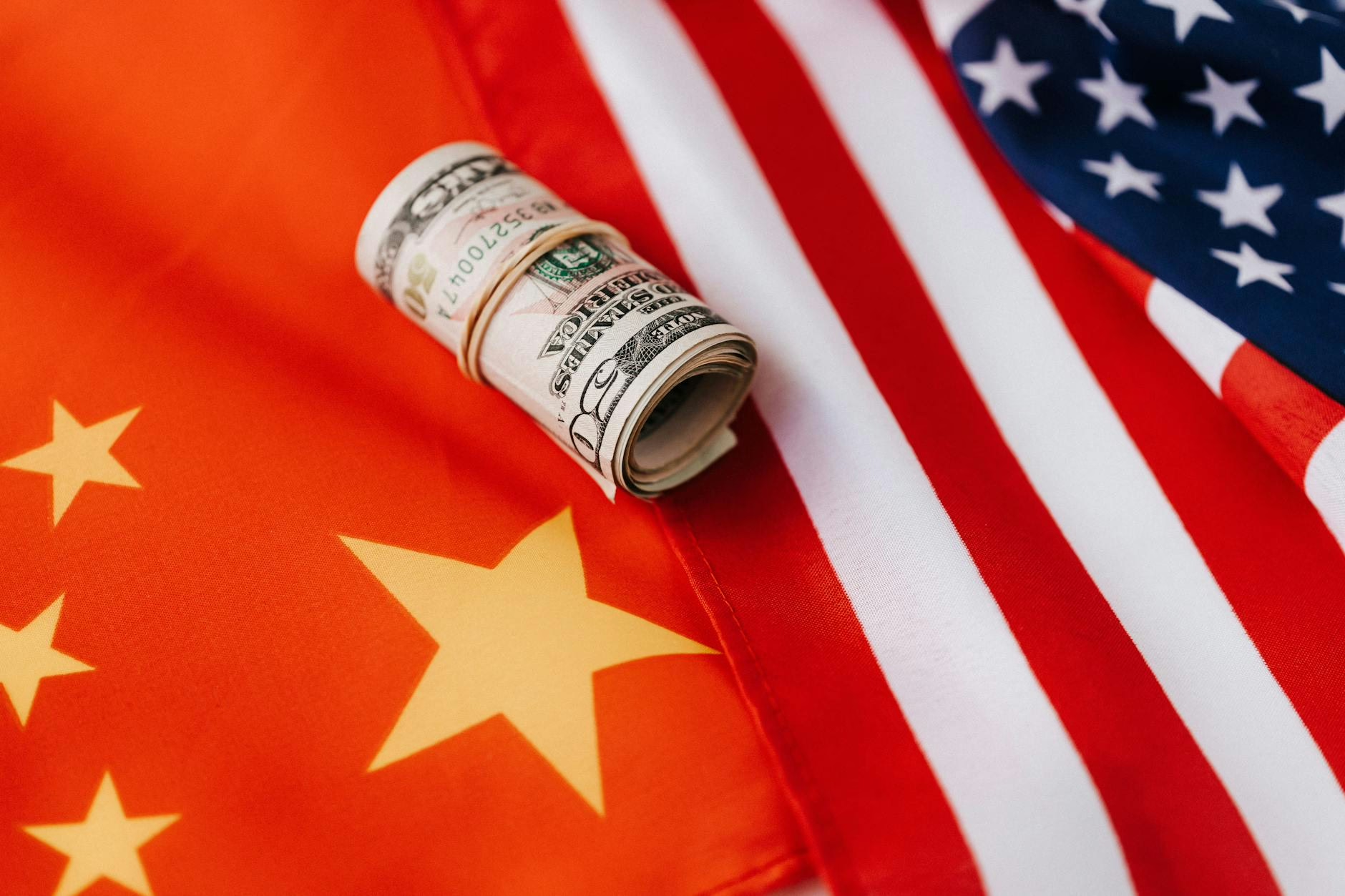Navigating Diplomatic Currents: Examining the U.S. Senate’s Proposed Stance on Taiwan
A new resolution before the U.S. Senate, identified as S.Res.579, signals a potential deepening of American commitment to Taiwan. As global geopolitical landscapes continue to evolve, particularly in the Indo-Pacific region, understanding the implications of such legislative proposals is crucial for citizens and policymakers alike. This resolution, originating from the Senate, aims to reinforce the United States’ engagement with Taiwan, a self-governing democracy that plays a significant role in regional security and the global economy.
Understanding the Core of S.Res.579: A Commitment to Taiwan
The specifics of Senate Resolution 579 are outlined in an XML file available on GovInfo. While the exact text of the resolution is not directly presented here, its classification as a “bill summary” suggests it articulates a particular legislative intent. Such resolutions, though often not carrying the force of law as statutes do, serve as important indicators of congressional sentiment and can influence foreign policy. In the context of U.S.-Taiwan relations, this means the Senate is likely deliberating on ways to formally acknowledge and potentially enhance the existing, albeit unofficial, relationship between the two entities. This typically involves discussions around security assistance, economic cooperation, and diplomatic engagement.
Historical Context: The Evolution of U.S.-Taiwan Policy
To grasp the significance of S.Res.579, it is essential to consider the historical trajectory of U.S.-Taiwan policy. Following the normalization of relations with the People’s Republic of China (PRC) in 1979, the U.S. shifted its formal diplomatic recognition from Taipei to Beijing. However, through the Taiwan Relations Act of 1979, Congress mandated that the U.S. maintain robust unofficial relations with Taiwan. This act commits the U.S. to providing Taiwan with the means to defend itself and views any attempt to determine Taiwan’s future by non-peaceful means as a threat to the peace and security of the Western Pacific and of grave concern to the United States. Subsequent administrations have navigated this delicate balance, often characterized by strategic ambiguity, while consistently supporting Taiwan’s democratic institutions and economic vitality.
Analyzing the Potential Impact: Security, Economics, and Diplomacy
The proposed resolution, S.Res.579, if passed, would signify a strong bipartisan signal from the Senate regarding its vision for the U.S.-Taiwan relationship. From a security perspective, it could bolster Taiwan’s defensive capabilities and deter potential aggression. This might involve increased military sales, joint training exercises, or enhanced intelligence sharing. Economically, closer ties could foster greater trade and investment, particularly in critical sectors like semiconductors, where Taiwan holds a dominant position. Diplomatically, a strengthened resolution could elevate Taiwan’s international standing, providing it with greater support in global forums and countering Beijing’s efforts to isolate the island.
However, such a move is not without its potential complications. The People’s Republic of China views Taiwan as a renegade province and has consistently warned against any actions that could be perceived as legitimizing Taiwan as a sovereign state. Beijing’s response to any significant shift in U.S. policy towards Taiwan is a critical factor to consider. Increased U.S. support for Taiwan could lead to heightened tensions across the Taiwan Strait, potentially impacting regional stability and global trade routes. The delicate equilibrium of the Indo-Pacific region relies heavily on careful diplomatic maneuvering and clear communication of intentions.
Considering the Tradeoffs: Stability Versus Assertiveness
The debate surrounding resolutions like S.Res.579 inherently involves weighing the benefits of a more assertive stance on Taiwan against the potential risks to regional stability. Proponents might argue that a clearer commitment from the U.S. is necessary to deter aggression and uphold democratic values. They may point to Taiwan’s vibrant democracy and its strategic importance as justification for stronger support. Conversely, those urging caution might emphasize the potential for miscalculation and escalation, arguing that maintaining a degree of strategic ambiguity has served to prevent conflict thus far. The economic interdependence between China and the U.S. also presents a significant tradeoff, with heightened tensions potentially disrupting global supply chains and financial markets.
What to Watch Next: Legislative Progress and Diplomatic Reactions
The progression of S.Res.579 through the Senate will be a key indicator of the current congressional mood. Observers will monitor committee deliberations, potential amendments, and the final vote. Beyond the legislative arena, the PRC’s official statements and any observable military or diplomatic adjustments in response to the resolution’s progress will be crucial to note. Furthermore, how Taiwan’s government and the Taiwanese public react will provide insight into the perceived effectiveness and desirability of the U.S. Senate’s proposed stance.
Navigating the Information: Where to Find Official Details
For those seeking to understand the precise legislative language and official details pertaining to this Senate resolution, the U.S. Congress’s official website, GovInfo, serves as the primary repository. Specifically, the summary file for S.Res.579 can be accessed to review the reported content.
View the Bill Summary for S.Res.579 on GovInfo
Key Takeaways for Concerned Citizens
- Senate Resolution 579 indicates a potential strengthening of U.S. legislative support for Taiwan.
- Understanding this resolution requires knowledge of the historical Taiwan Relations Act and the policy of strategic ambiguity.
- Potential impacts span security, economic, and diplomatic spheres, with significant implications for regional stability.
- The U.S. faces tradeoffs between asserting support for Taiwan and managing potential escalation with the People’s Republic of China.
- Official government sources like GovInfo are essential for verifying legislative details.
The U.S. Senate’s deliberation on S.Res.579 underscores the ongoing importance of Taiwan in American foreign policy and the complex geopolitical dynamics of the Indo-Pacific. Citizens are encouraged to remain informed about these developments and to engage with their elected representatives on matters of national security and international relations.


